72 hours later and I am sitting in a coffee shop back in Jerusalem [a dead quiet Jerusalem, as the 45th President has arrived for his official visit and most roads have been closed off for security].
Yesterday morning I woke up in Bethlehem after 3 hours of sleep after leading a group of international Jews (mainly North Americans) away from the site where the IDF had dismantled our tent.
The day before that I woke up in a sleeping bag on a rock on a hillside being offered coffee from Musa as the sun was rising. Musa had driven 6 hours from Qalqilya the night before to join us at the Freedom Camp. I was offered mulberries to eat and Ahmed was busy fixing me up a sandwich of pita and fresh labneh.
And here I am in this coffee shop, listening to Sam Cooke's “A Change Gonna' Come” being piped through the speakers and trying to think of where to even begin. So, let's begin at the beginning:
20 years ago, Fadel Aamar and his family were pushed off his land in the area known as Sarura, located in the South Hebron Hills, by the Israeli army. The area where his family had lived for generations had been declared an official closed military zone, and was subsequently called Firing Zone 918. Fadel's family's lands were confiscated, his family was intimidated, and they eventually abandoned their home and moved to Yatta (the nearby city where most people living there have a similar story).
Fadel Aamar
Three days ago, Fadel used his key to open the door to his family's cave-home and entered his home again for the first time in twenty years. Three days ago, over three hundred Palestinians, Israelis, and diaspora Jews arrived to Fadel's family lands to be there for him to open his home and return. The joy in the air was palpable as groups propped up a tent on the ruined rock walls of a home from the village of Sarura, as new walls were built, as the cave was cleared of dust and dirt and made habitable. Teams were established to be on clean-up duty and sort out a system for recycling and trash. Other teams were busy preparing the roadway to be repaved to ensure that water could be transported to this remote location and enable quicker transport in an emergency if someone needed to get to a nearby hospital.
I remember walking the hills of South Hebron two years ago (link to that blog post here and a blog post from solidarity action in Susiya and Umm al-Khayr here) and feeling the futility of helping these communities. Ringed on all sides by settlements, what is the point? I remember hearing stories of a cycle of violence between the settlers attacking the Palestinians who continued to live there, and the retributive violence that led one home-owner to be in the hospital leaving his wife all alone in a house in the middle of nowhere. She stood resolutely next to her doorway and said, "I will not leave here, I prefer to die on my lands." I thought to myself that we could draw attention to this family and that maybe they could stay for one more day, and then they would eventually give up and move to Yatta. I could already picture the expansion of the settlement into the valley; I couldn't wrap my head around why this is productive.
But, I spoke to a friend who told me a sentence that has remained ringing in my ears since then: Existence is Resistance. These communities stand at the frontline of occupation and discriminatory policies of violence and land annexation in Area C in the West Bank. They are the most vulnerable communities—often living in remote locations, without access to basic services such as water, electricity, or roads.
They are also, in my eyes, the strongest communities. Adhering to the principle of "Sumud"—roughly translates into English as steadfastness or resilience—they refuse to give up. Homes may be demolished, but they return and rebuild. The army may intimidate them, but they stand up against it. Settlers may attack them, but they return. This is their home.
So, the Sumud Freedom Camp began, in an attempt to join forces together and to oppose the continuing occupation of the Palestinian territories in the West Bank, the daily injustices, and to adopt the steadfastness of our Palestinian partners in the fight. The idea was dreamed up by an unprecedented coalition of Palestinian, Israeli, and international organizations and inspired by the Standing Rock camp back in North Dakota, USA: Holyland Trust, Youth Against Settlements, Combatants for Peace, All That's Left Collective, and the Center for Jewish Nonviolence (which included a delegation from the group If Not Now).
The groups adhere to strict principles of nonviolent creative actions to oppose the occupation and to draw attention to the persistent problems of the Israeli Occupation during its 50th year. The intended goals of the Camp were to reclaim Palestinian lands, rebuild ancestral homes, and rehabilitate historic wells. Led by Palestinians in the coalition, this was the largest direct action of diaspora Jews to date.
I arrived to the Camp Friday morning on behalf of the women’s group from Combatants for Peace. We arrived in high spirits astounded to see a large tent of circus-like proportions propped up and surrounded by Palestinian flags. It had been 6 hours since the beginning of the camp and it was still standing. A similar protest action (called Bab al-Shams) had been attempted four years ago and was quickly shut down. I was greeted by hugs and waving hands as friends from all over the world and the region had congregated on this hillside. I was flooded by the feeling of community and pleasantly surprised as many of my worlds collided: a family friend from Denver who had been present at my baby-naming was there as part of the Center for Jewish Nonviolence delegation. Friends from various phases in Jerusalem had returned as well, friends from All That’s Left, and my partners in Combatants for Peace were all present. We came from Jerusalem, from Jericho, from Tel Aviv, from Yatta, from Belgium, from Australia, from Ramallah, from Hebron, from Tarqumia, from Umm al-Kheir. We came together to build the future we want to see.
In the shadow of the Israeli settlement Ma’on, we built tents, we built a community center, we picked up trash, we made walls, we cleared a road, we painted tires to mark the road, we made food, we told jokes, we taught each other our languages, we laughed, we danced, we prayed.
In the shadow of the settlement, on Friday night, the Jewish delegation conducted the Kabbalat Shabbat service as the young Palestinian men connected speakers to the solar-panel generator to blast Arabic music and began dancing around fires. Standing by the old well, a rabbi conducted the Jewish services to welcome in the Sabbath and the prayers rose to the setting sun. Jews wearing t-shirts that said “End the Occupation” in English, Arabic, and Hebrew sang in Hebrew to the hillsides. Fadel joined the services and sat listening and smiling.
Kabbalat Shabbat as the sun was setting.
The fires were lit, the dancing began, and the smiles abounded.
I stayed up late laughing with a group from Combatants for Peace as Aziz, a member of the movement and an actor, recounted stories and relived moments when he tricked Israeli soldiers into thinking he was a mute so that they wouldn’t stop him, stories that left us quaking in laughter. Inside jokes were made, songs were sung around the fire. I fell asleep with my Palestinian friend Lubna, who is a member of the woman’s group, and my friend Ahmed under the stars keeping an eye out for settlers or army.
The dawn broke, a new day began, and we rubbed the sleep out of our eyes grateful to still be standing. New people came, new work projects began, signs were made to welcome people to the camp, tasks were divvied up and we began.
There were a few instances of settlers approaching from the hillside to check out what was going on below, but they walked away.
The day was productive, and was generally quiet. The sun set, and we were still there. The entire group reconvened and gathered under the big tent to conduct the havdalah ceremony—that which separates the holy from the profane and marks the end of Shabbat and the return to the normal weekday.
A barbecue was announced and fresh chickens were cooked over the fire. We were just laying out mattresses in the big tent when whistles were heard: the army had arrived.
The entire atmosphere changed quickly to one of serious action. Groups were organized: those willing to be arrested went to the front, arms linked, and began to sing songs with Jewish values imbedded in them. The army went straight for the generator; Isa Amro of YAS shouted out “Protect the generator,” a group went towards it to stand between it and then army. A scuffle broke out, an officer hit one of the nonviolent activists, he was pushed to the ground against a table. The generator was taken, the lights went out. The darkness was punctuated by flashlights and the flash on cameras that were filming all. Live streams were uploaded. The singing switched to chants, “The World is Watching YOU” as the tents were dismantled. Under the cover of darkness, the IDF arrived and took away all the buildings, supplies, and necessary materials. The group was threatened with tear gas and pepper spray. Palestinians and Jews sat in the middle of the tent as they were dismantling it, singing, chanting, and refusing to leave.
The army left, no arrests were made. No serious assaults, no broken bones, no tear gas, no skunk water, no rubber bullets, no stun-guns, no live fire: none of the usual methods against Palestinian activists were used. The group reconvened, reckoning with their privilege as Jews and the way in which their bodies were protected and how that protection was extended to the Palestinians present as well.
I was with the group that had opted to not be arrested, and at a certain point we had decided it was best to leave in case a closed military zone was declared and the army would then begin arresting everyone who was there. We led the group to the nearby village, which had partnered with the action, and then organized buses to return to the group’s home base in Bethlehem. 3 hours later, I was awake and trying to find a way back to the camp. I had to go back, I had to see my friends, I had to know that they were okay. Those who had remained behind had stayed the night were left without tents, without mattresses (the army had poured water over many of the mattresses and blankets to make them unusable) and without water.
A few hours later, I returned with my women from CFP women’s group, bouncing over the rocks of the road in a car with Ali Abu-Awwad, of Roots, and Suli Khattib, one of the founders of Combatants for Peace. The camp had been relocated, and it had been rebuilt. Fadel and his family were moving into their cave home, his wife was making fresh bread over a fire for the first time in twenty years. The group was gathered under the tent as Fadel, beaming, welcomed us into his home. The sleep-deprivation was worth it.
I remained for the day yesterday as a new tent was rebuilt, as we sat and laughed and hugged, and were rejuvenated by each others’ presence. We returned, we rebuilt, we are resilient. We are Sumud.
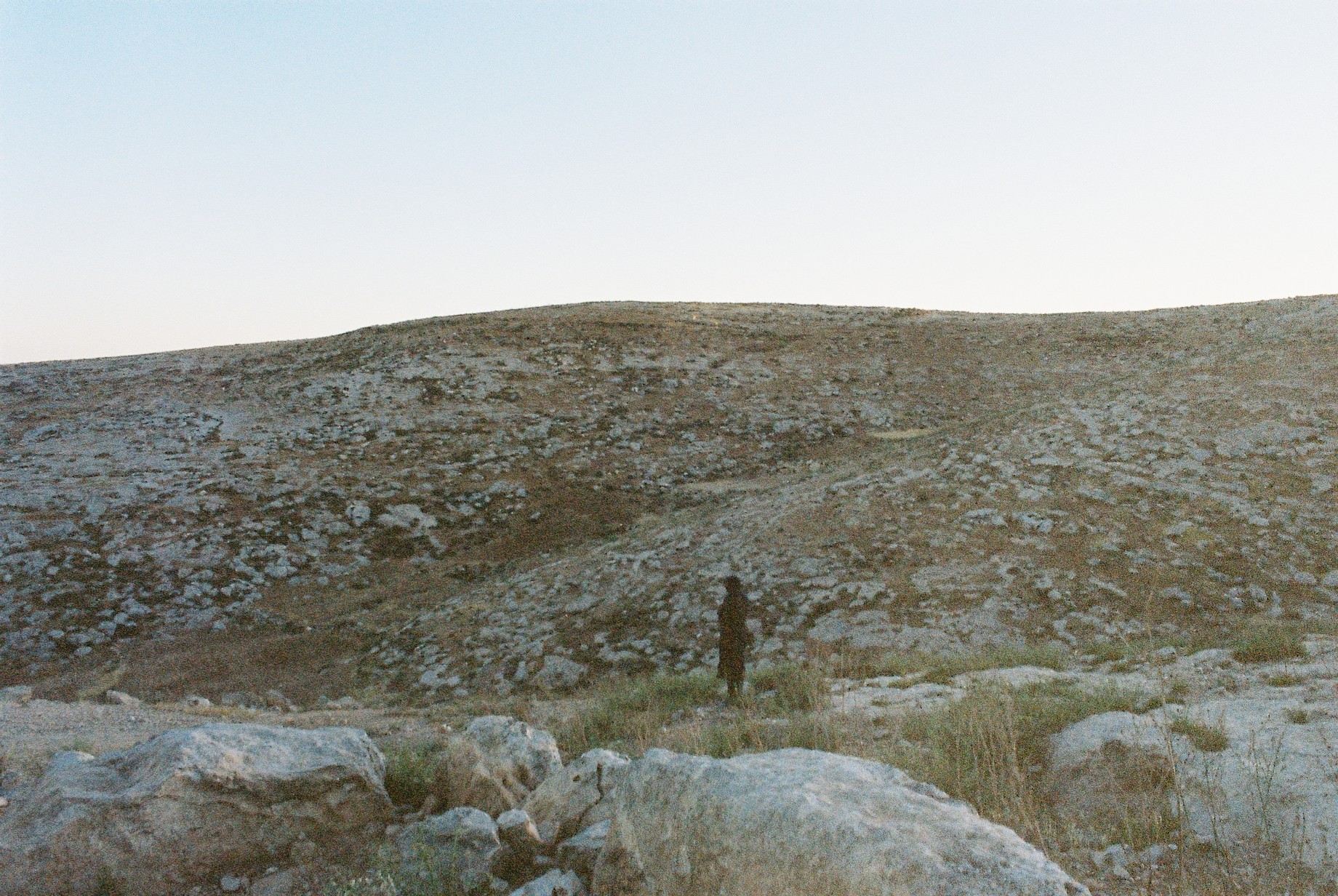
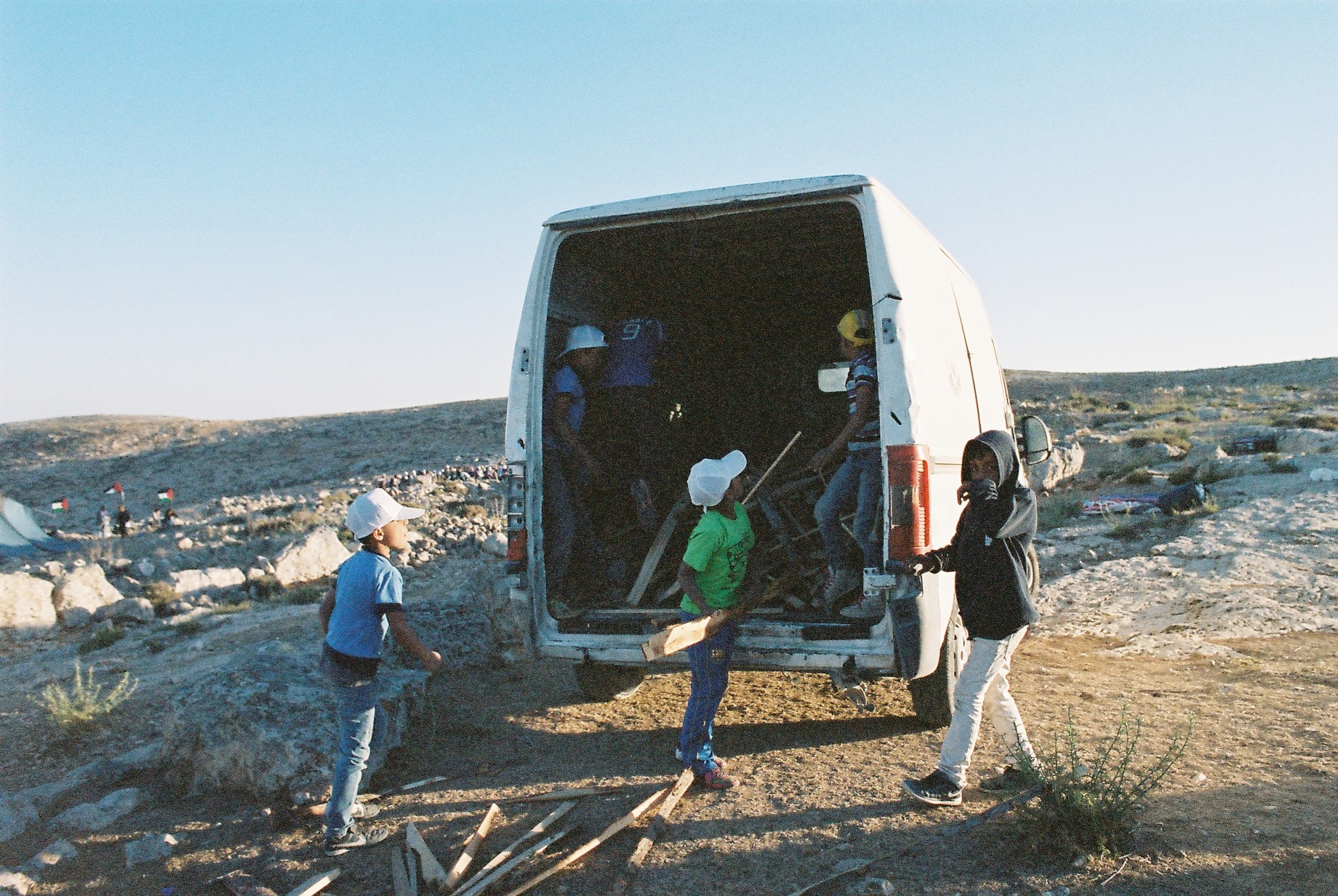
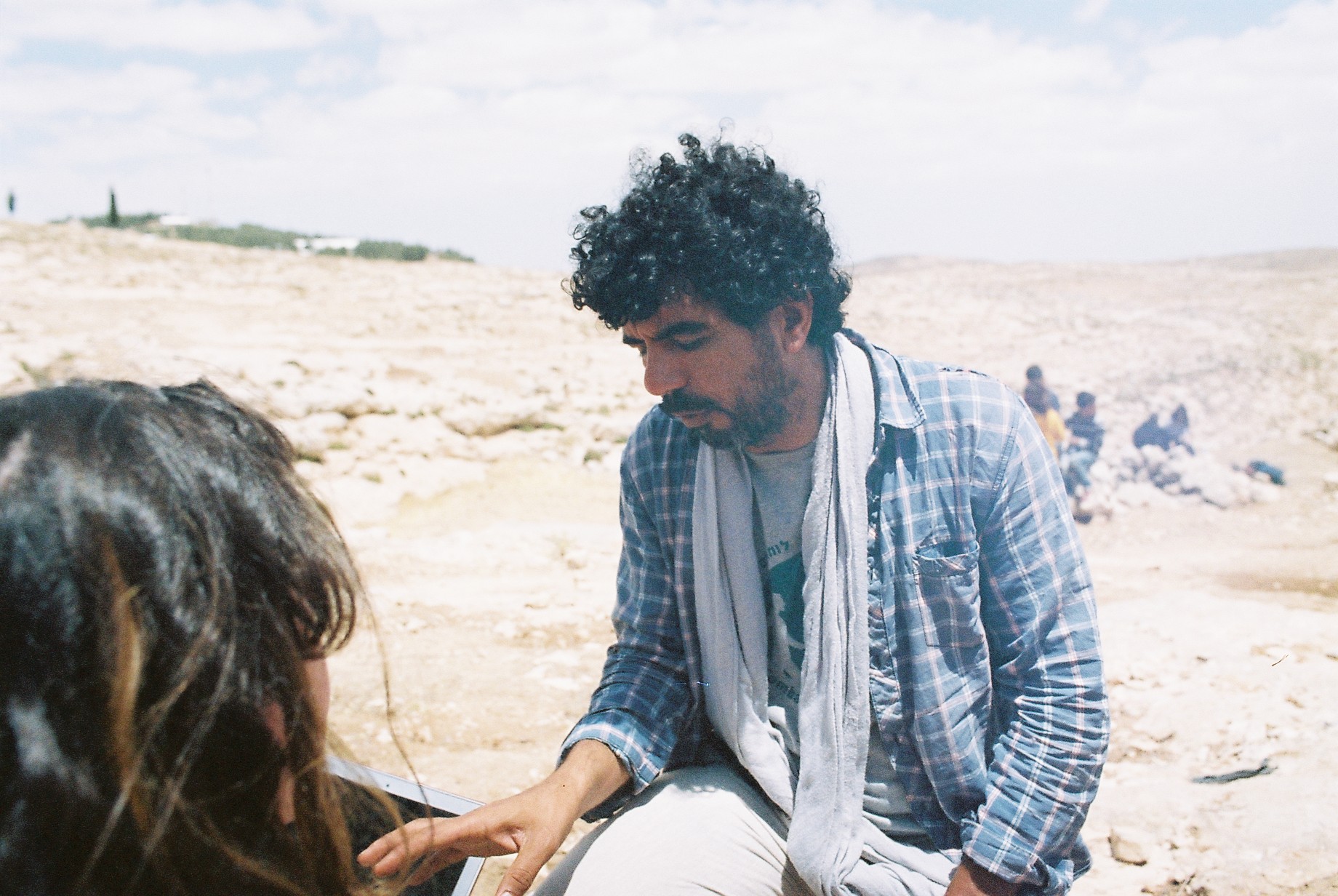
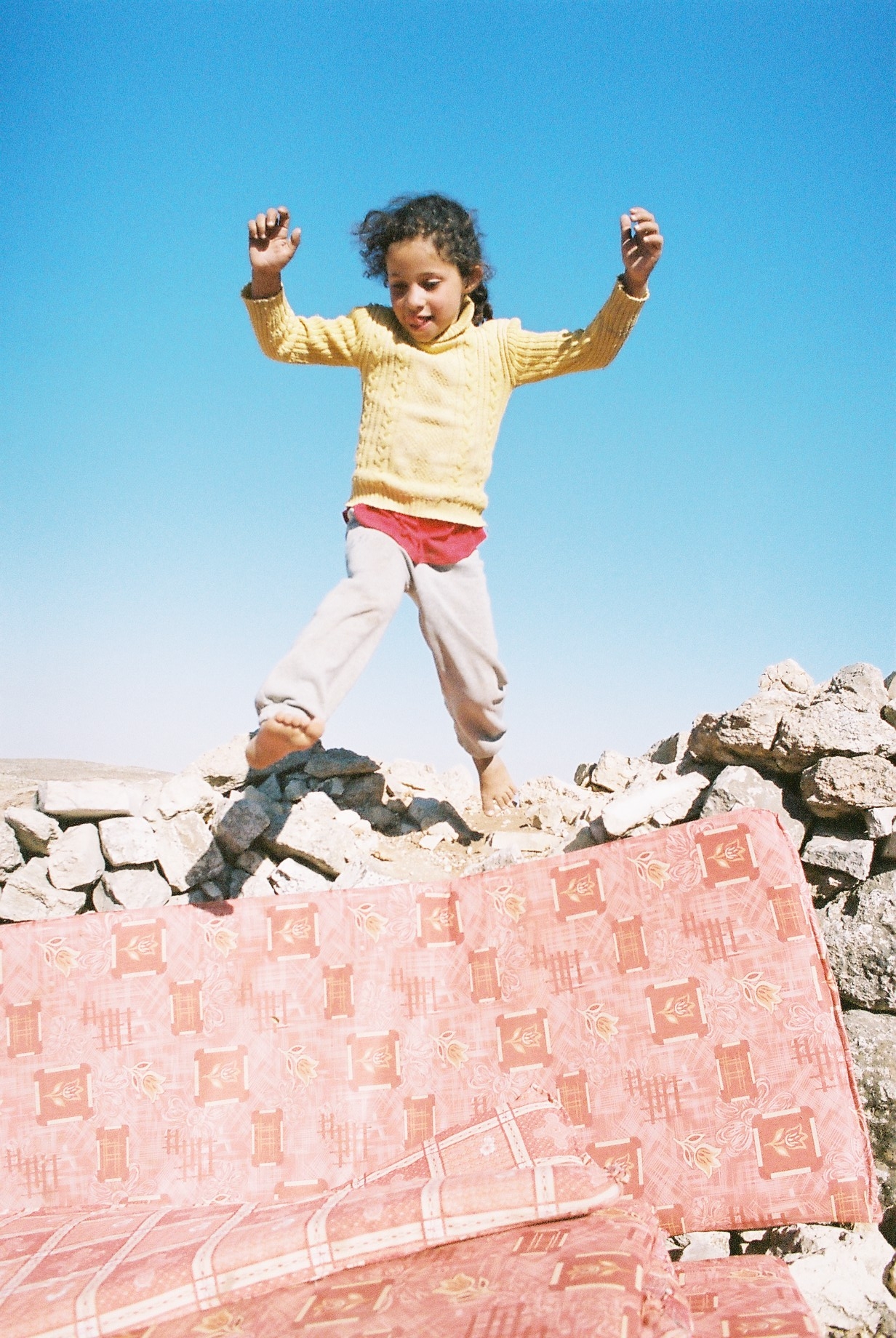
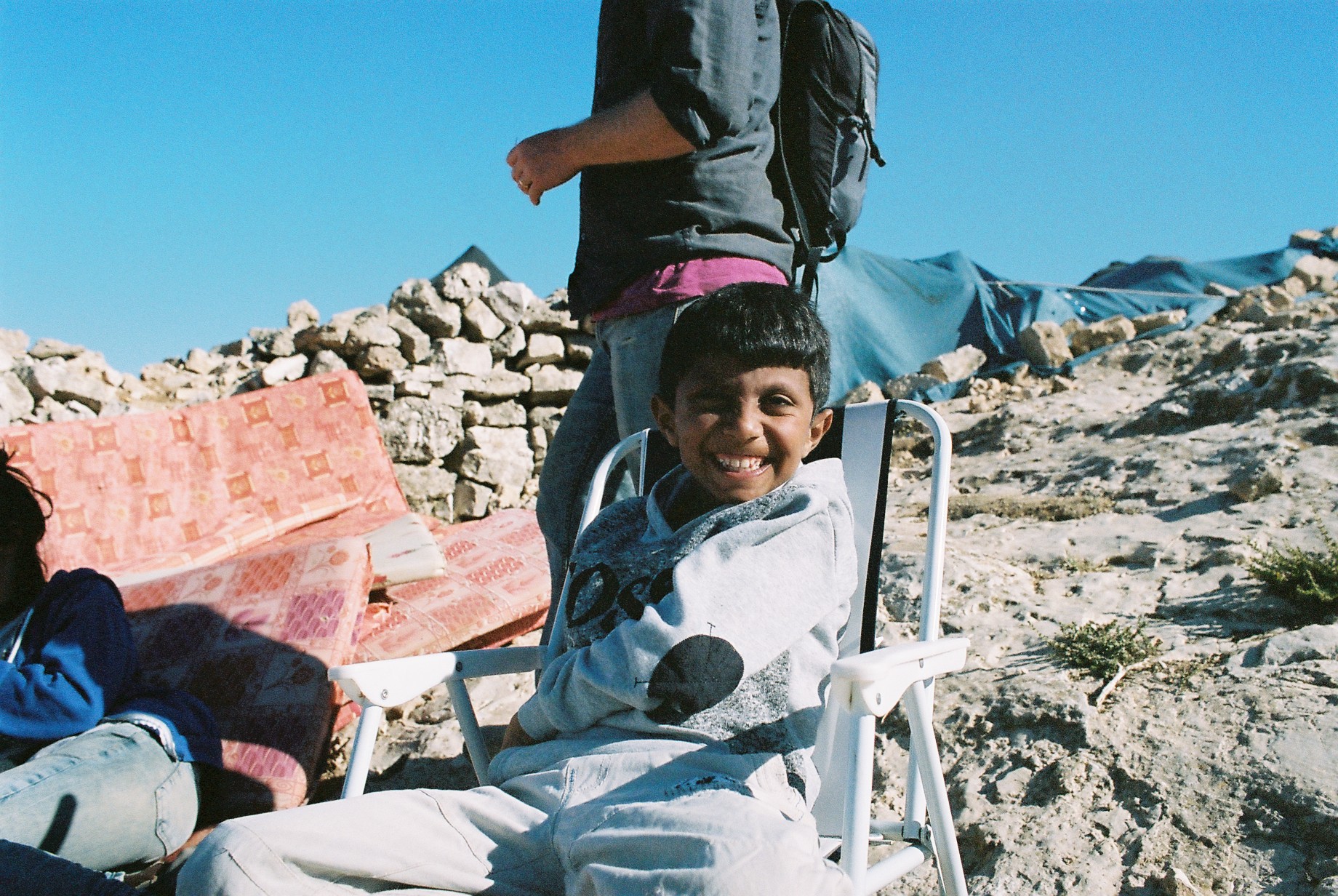
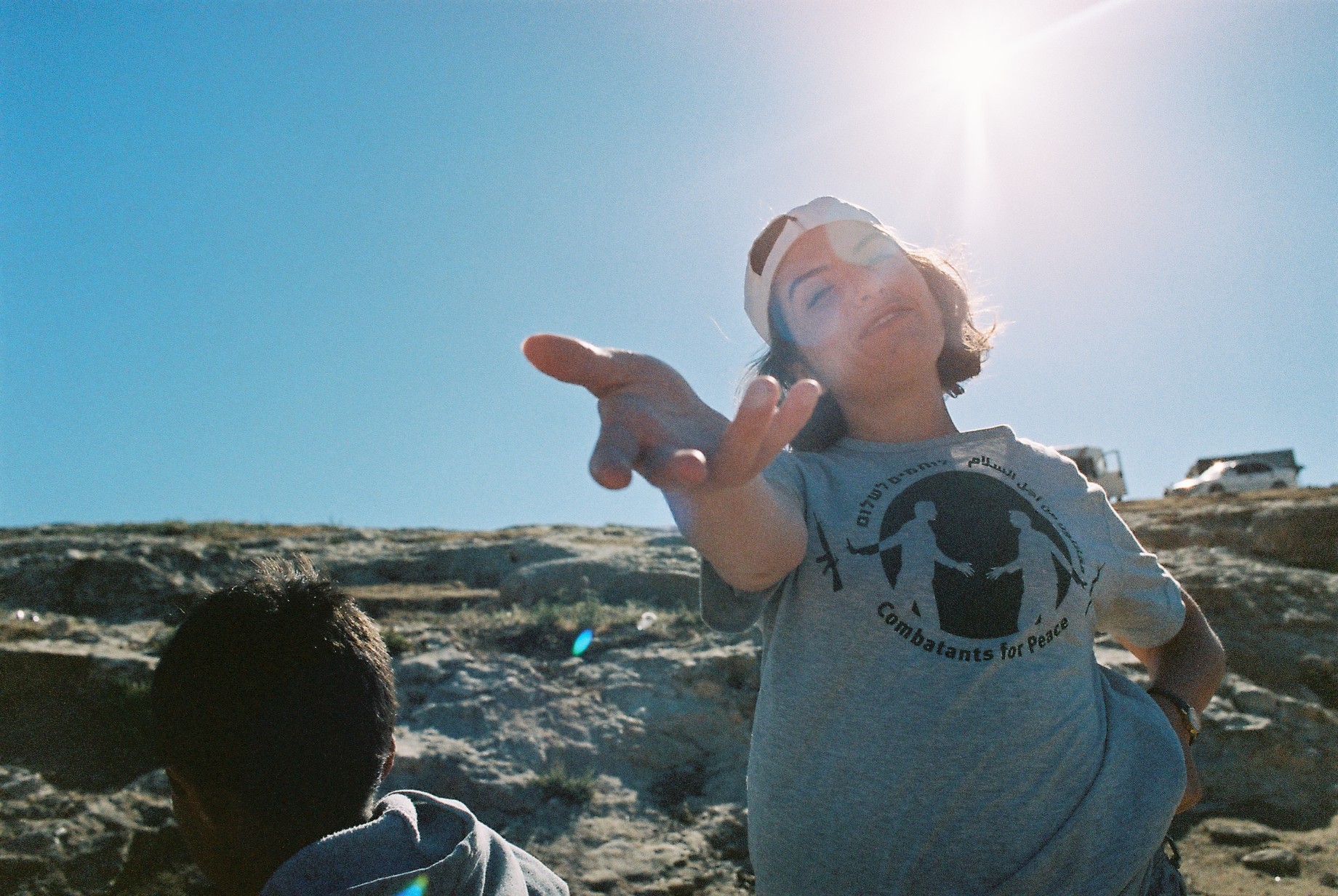
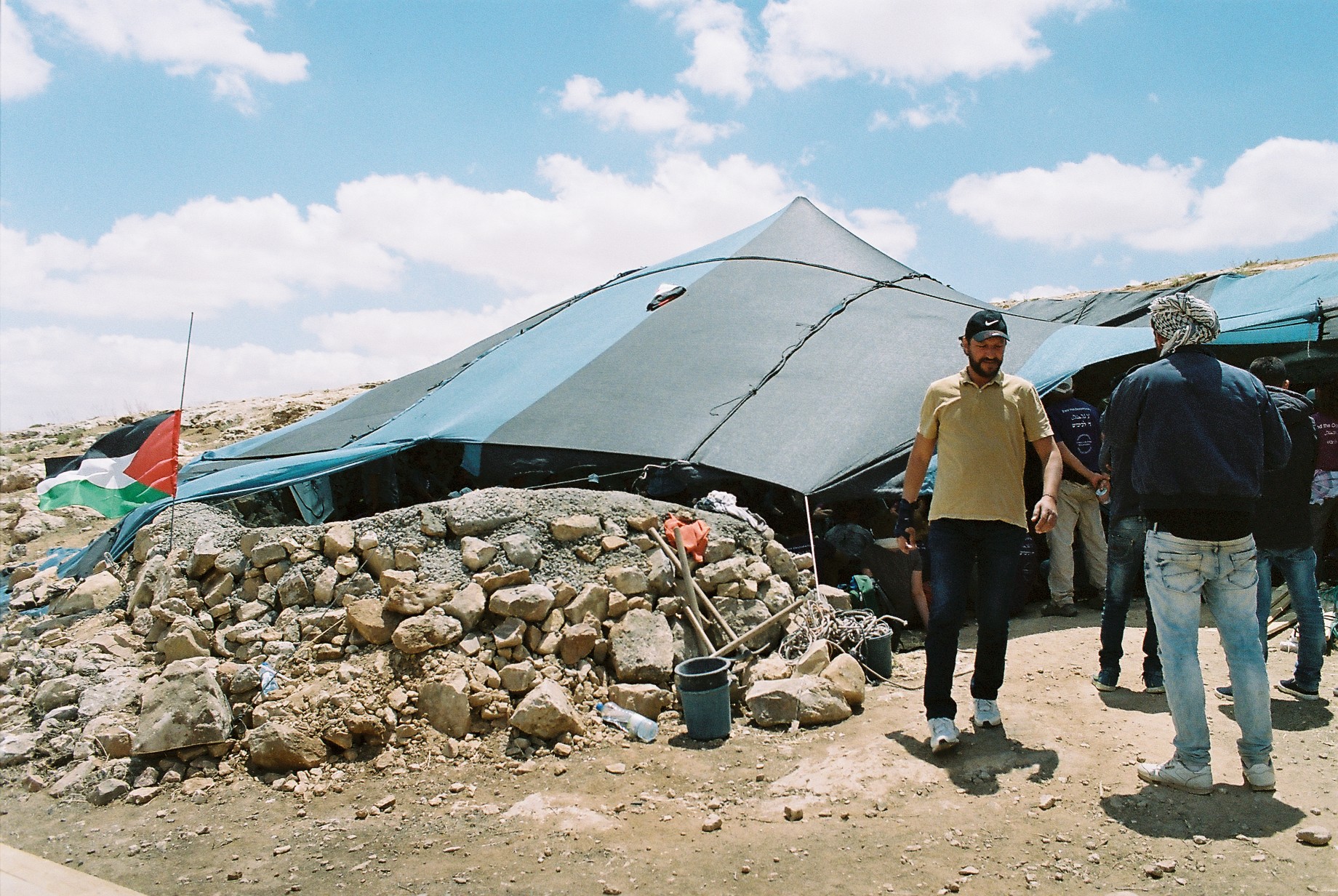
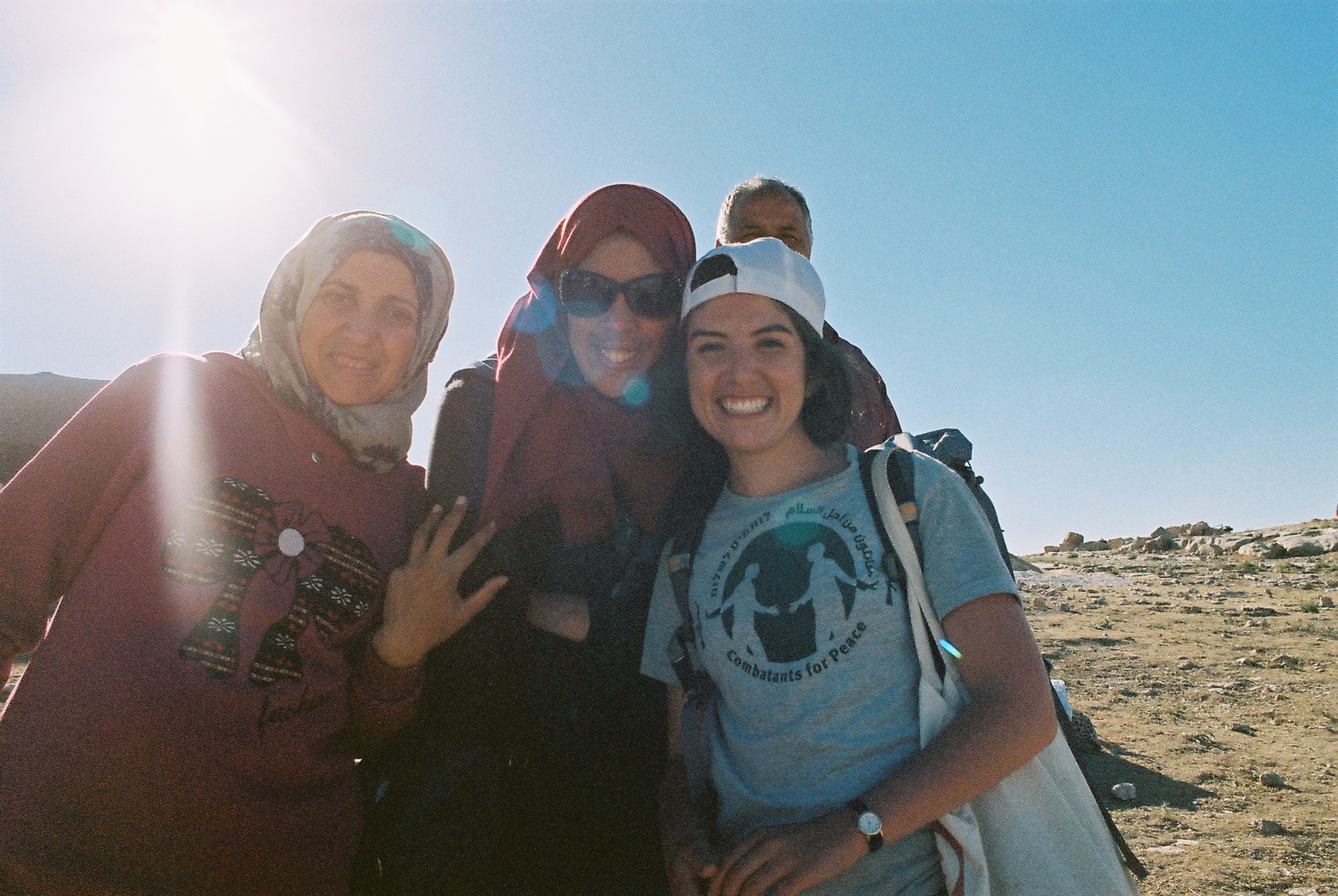
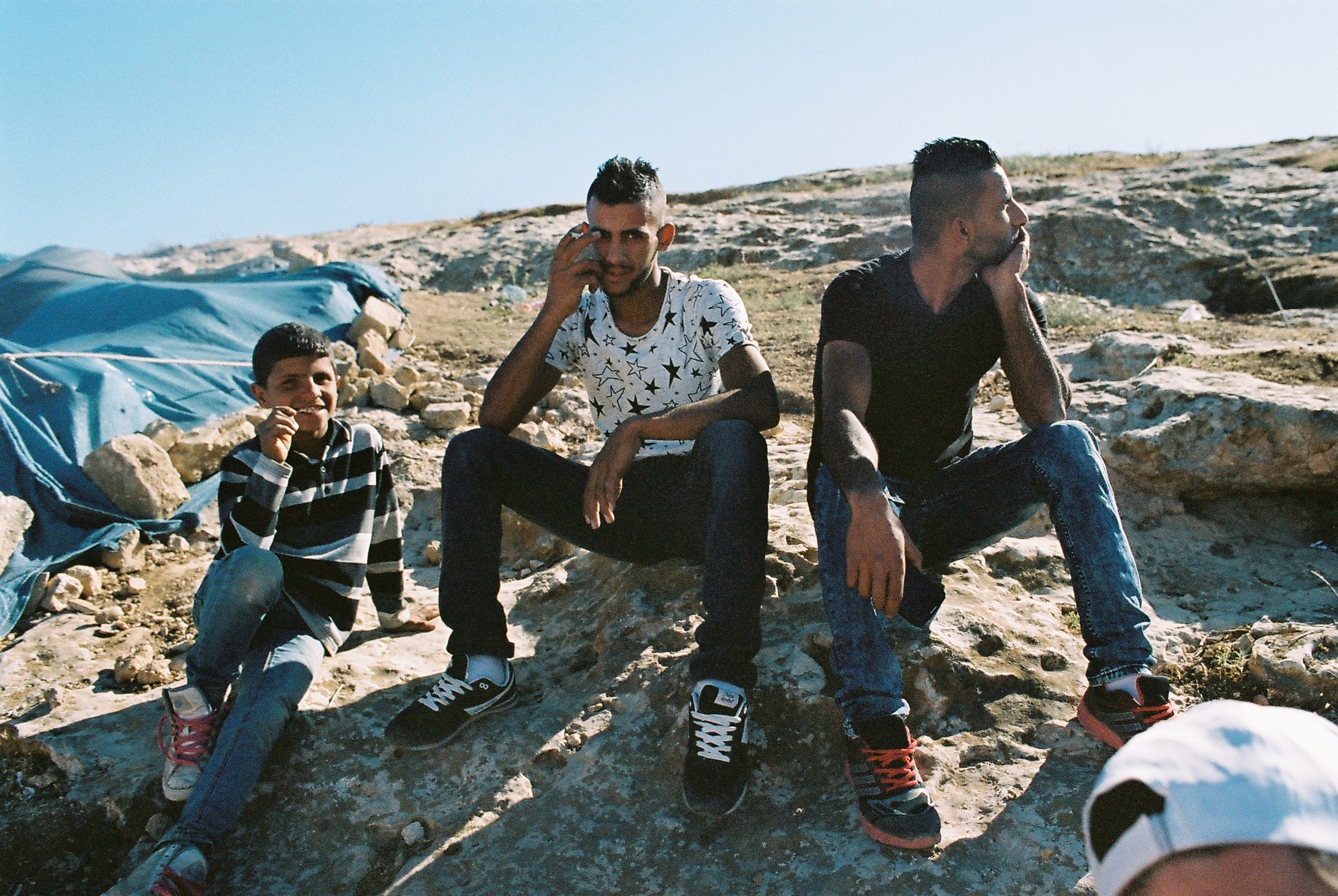
Please follow this project as it continues and expands via sumudcamp.org, and the hashtag #WeAreSumud. It is day 4 of the camp, and we are still there. However we need help to keep going and to make the space sustainable for the families of Sarura to return!
If you are in the region, please consider joining a shift and being at the camp, either in the day or during the night. Rides are being organized from Jerusalem and Tel Aviv to get there. Please be in touch with me if you are interested or want to know more about how to get there. Having internationals, Israelis, and Jews there is incredibly helpful and provides a buffer of safety from the IDF for our Palestinian partners.
If you are abroad, we need monetary support! We need money to replace the generator that was taken, to buy the supplies to rehabilitate the wells, and to support the families in their efforts to rebuild. Follow this link here to donate to the crowdfunding of this project.




